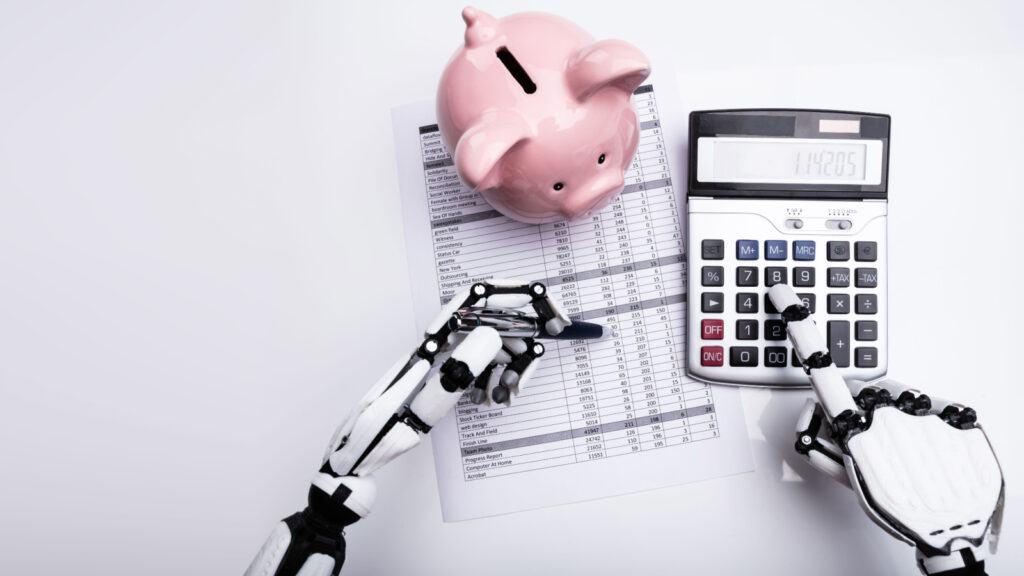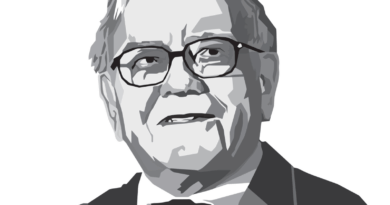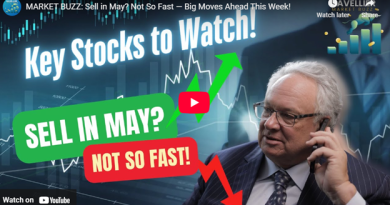The Coming Battle: AI Wealth and the Socialist Backlash
New York City might elect a socialist mayor… the relevance to AI… our economic/social equilibrium is about to be disrupted… how it resolves… what to do now in your portfolio
VIEW IN BROWSER
Last Thursday, one of The Wall Street Journal’s headlines read:
Wall Street Panics Over Prospect of a Socialist Running New York City
If you missed it, last week, Democratic Socialist Zohran Mamdani stunned former New York governor Andrew Cuomo in the New York City Democratic primary for mayor.
Here’s the WSJ with some of Mamdani’s agenda items beyond his plan to raise taxes on the wealthy:
He has said he would make the city more affordable by freezing rents on rent-stabilized apartments, investing $70 billion in publicly subsidized housing, providing free bus service and opening government-operated grocery stores.
Dan Loeb, chief executive of hedge fund Third Point, posted on X:
It’s officially hot commie summer.
Now, let’s switch focus to another headline from last Thursday that seems completely unrelated at first.
Here’s Bloomberg:
Salesforce CEO Says 30% of Internal Work Is Being Handled by AI
This comes after the software giant has already eliminated more than 1,000 jobs here in 2025 as it restructures around AI.
It’s no surprise. Back in January, speaking at the World Economic Forum in Davos, Salesforce CEO Marc Benioff told the audience that they would be the last group of executives to lead an all-human workforce.
From Benioff:
From this point forward…we will be managing not only human workers but also digital workers.
While these two headlines look unrelated, they’re part of the same story…
A rising tide of economic displacement powered by AI…and the political/social reckoning that’s going to follow.
The enormous technological opportunity – and threat – of AI
Salesforce’s shift toward AI is hardly an outlier.
In May, Cybersecurity company CrowdStrike announced it would cut 500 jobs – roughly 5% of its workforce.
Here was MarketWatch with the explanation:
[Behind the layoffs is] both the security threat posed by artificial intelligence and the growing use of AI to move faster and operate more efficiently.
That same week, The Wall Street Journal reported a similar story from tech blue blood IBM:
International Business Machines Chief Executive Arvind Krishna said the tech giant has used artificial intelligence, and specifically AI agents, to replace the work of a couple hundred human resources workers.
Also in May, language-learning app Duolingo unapologetically cannonballed into AI. From TechCrunch:
Duolingo announced plans this week to replace contractors with AI and become an “AI-first” company — a move that journalist Brian Merchant pointed to as a sign that the AI jobs crisis “is here, now.”
Meanwhile, a few weeks ago, we learned that Amazon is testing humanoid robots designed to perform package deliveries.
And yesterday, in an interview with CNBC, Amazon CEO Andy Jassy said that Amazon will be reducing its headcount thanks to AI.
From CNBC:
Jassy admitted that he expects the company’s workforce to decline in the next few years as Amazon embraces generative AI and AI-powered software agents.
But what happens to all the workers?
If AI replaces people, where does the money go?
To shareholders. To executives. To private equity funds.
Not to labor.
When AI begins doing 30% of the work at a company, it creates the potential for 30% in labor cost savings. But those savings only translate into higher margins if the company reduces its payroll accordingly – either by laying off workers, freezing hiring, or cutting pay.
So, what do you think a CEO will do?
We don’t have to guess. Benioff at Salesforce and Jassy at Amazon are showing us.
As headcounts shrink and AI systems scale, the value that once went to wages increasingly accrues to the company’s bottom line. This will amount to one of the most dramatic shifts in the capital/labor relationship in modern history.
Bottom line: The AI dividend won’t be shared by all, just a select few.
So, how will workers, and larger society, respond?
Mamdani’s win in New York is a preview of a brewing backlash
Viewed through an AI/“Haves vs Have Nots” lens, Mamdani’s victory in New York makes sense.
Economic pressure is increasing, especially for younger voters and renters in high-cost cities. As wealth accumulates at the top – exacerbated now by AI-driven efficiencies – there’s growing appetite for socialist redistribution.
Sure, we’ve had some left-populist and socialist candidates make electoral gains across U.S. cities in recent years, but New York is the financial capital of the world. And a major party candidate is now openly calling for redistributive policies, public ownership, and state intervention in markets.
And let’s be clear: Mamdani didn’t beat Cuomo despite these policies – he won because of them.
We’re only at the beginning of this evolution.
As AI begins to replace not just factory and warehouse workers but customer support reps, paralegals, software engineers, and even parts of middle management, that painful economic squeeze will move up the income ladder.
And the higher it goes, the closer we get to an economic earthquake.
When AI wealth concentration and New York political socialism collide
If wealth continues to concentrate – accelerated by AI – while middle class wealth erodes, the U.S. will likely face mounting pressure for sweeping policy reforms. In this case, that might mean Universal Basic Income (UBI).
To make sure we’re all on the same page, UBI is a social welfare program where all citizens regularly receive a set amount of money from the government, regardless of their income, employment status, or other qualifications.
There are loads of related questions. But one of the core issues is “How would the government fund UBI payouts?”
Well, it seems pretty obvious…
From the coffers of the AI companies that have accrued all the wealth.
And if that’s the case, get ready for an enormous fight with vast implications for your portfolio.
The title fight is coming fast
In one camp, we have people like David Sacks, a member of the so-called “PayPal Mafia” (which includes Elon Musk and Peter Thiel).
You might know him as one of the co-hosts on the business and technology podcast “All-In” alongside Chamath Palihapitiya, Jason Calacanis, and David Friedberg. But most relevant to today’s Digest, he’s a top White House policy advisor for AI – with some strong opinions on UBI.
From Business Insider, a few weeks ago:
The AI czar said on X this week that such government “welfare” is a “fantasy.”
“The future of AI has become a Rorschach test where everyone sees what they want. The Left envisions a post-economic order in which people stop working and instead receive government benefits,” Sacks wrote.
“In other words, everyone on welfare. This is their fantasy; it’s not going to happen.”
In the other camp we have various politicians like Mamdani, as well as some tech C-suite executives pointing toward UBI.
A few weeks ago, Google DeepMind CEO Demis Hassabis said that not only do we need UBI, but we also need a “universal high income.”
After telling the interviewer about the enormous changes rapidly approaching with AI, Hassabis said:
We may need things like universal high income or some way of distributing all the additional productivity that AI produces in the economy.
But if the productivity gains from AI are going to be redistributed, why would a business invest billions in AI technology?
Will Google DeepMind lead the charge to redistribute the lion’s share of its profits to the masses – Google investors be damned?
If so, I look forward to the class action lawsuit from investors (argued by humanoid lawyers).
On the other hand, if we don’t redistribute the snowballing concentration of wealth at the top (especially as people lose jobs to AI), what’s to stop an eventual “let them eat cake” moment?
Civil unrest isn’t off the table if people believe the system has failed them and is preventing them from upward economic mobility.
History suggests this isn’t an absurd notion to brush off.
So, how does this play out?
Off the top of my head, here are some ideas we’ll probably hear about:
- A “robot” tax, as Bill Gates suggested
- Higher capital gains taxes on investors benefitting from AI-specific gains
- Broad wealth taxes for the biggest, wealthiest beneficiaries of the AI economy
- Tax incentives or some other advantage for AI companies that voluntarily contribute to a sovereign AI fund
- Some type of labor protections in select industries (remember the dockworkers strike last year which made protections against robotic workers a central point?)
- New pay model where citizens earn income for allowing their data to be harvested by big tech for the various algorithms
Whatever the final solution, it’s nearly a lock that “more taxes” will be a part of the answer. But the government must walk a fine line…
Too much tax and you penalize innovation and discourage AI investment… too little tax and you risk excessive wealth concentration and social resentment/upheaval.
Whatever the answer is, it will likely require our politicians to use a scalpel – not a sledgehammer.
The action step for investors
You already know it – invest in top-tier AI stocks.
Companies that successfully leverage AI will outperform their peers by a wide margin. Productivity gains, reduced overhead, and faster scaling are already showing up in earnings…and by extension, stock prices.
Just look at Nvidia’s market cap – it’s evidence of the AI infrastructure gold rush.
At some point, legislation will arrive that redistributes AI gains in some fashion, or that taxes you on your AI returns. But for now, we’re in a window during which AI is taking over the economic world unchecked.
It’s your call what to do about it.
But there’s a second way you can leverage AI today…
From Ken Griffin at Citadel, to Steven Cohen’s Point72 Asset Management, to Ray Dalio at Bridgewater, AI is now playing a huge role.
Fortunately, retail investors aren’t without options.
Our corporate partner, TradeSmith, is one of the preeminent investment quant shops in the world. It has a staff of data scientists, software engineers, and investment analysts working on developing its market algorithms.
It’s spent more than $20 million and hundreds of thousands of man hours developing the most cutting-edge financial innovations on the market for regular investors. And earlier this week, it debuted its latest AI investment tool.
It’s basically a way to outsource your trading decisions to some of the most advanced AI algorithms available in the market today.
Here’s TradeSmith CEO Keith Kaplan:
According to a report from the SEC, hedge funds deploying AI-driven trading strategies outperformed their peers by an average of 12%.
TradeSmithGPT can do better.
In our back-testing, it identified setups with potential gains as high as 776%.
Of course, that’s just one example.
In back-testing, it also flagged…
- A 153% win on Spotify (SPOT)…
- A 172% win on Eli Lilly (LLY)…
- And a 339% gain on Taiwan Semiconductor Manufacturing (TSM).
All in a matter of days.
Now, not every trade will be a winner. So, you should never invest more money than you can afford to lose.
But if you want to invest alongside AI like the top players on Wall Street, this new software is something you’ll want to have on your radar.
Last Wednesday, Keith held a live demo of this new tool – TradeSmithGPT. He discussed the engineering, how it works, and how it can make an enormous difference in your portfolio this year – even if volatility remains. Here’s the link to the free demonstration.
By the way, today is the last day it’s available. I’m told the video is coming down tonight at midnight.
The bottom line is that AI is here. Either we use it…or get steamrolled by it.
Circling back to New York, UBI, and AI profits…
I believe the first domino has tipped, and here’s what’s coming…
AI drives profit concentration… this leads to increasing economic dislocation… political backlash grows… eventually, the masses vote in candidates who champion redistributionist economic policies… the stock market – and our portfolios – must adjust.
That final evolution will be painful for investors. But between now and then, we’ll have a blow-off period of enormous wealth-building opportunity. Yes, it’ll be volatile with some bruising corrections, but “higher” is our destination.
But it will all come faster than we expect, which will bring challenges.
Fund manager and columnist for the Financial Times, Ruchir Sharma put it well:
We are living through the most dramatic reshuffling of wealth and power in modern economic history.
The winners and losers are being determined faster than our systems can adapt.
Of course, when reshuffling occurs at a faster pace than systems can adapt, things break.
We’re already seeing our systems coming under pressure.
Look at New York…
Look at Salesforce/Amazon…
AI is here. Its rewards are real. But its risks are equally real – and spreading.
Have a good evening,
Jeff Remsburg
The post The Coming Battle: AI Wealth and the Socialist Backlash appeared first on InvestorPlace.






